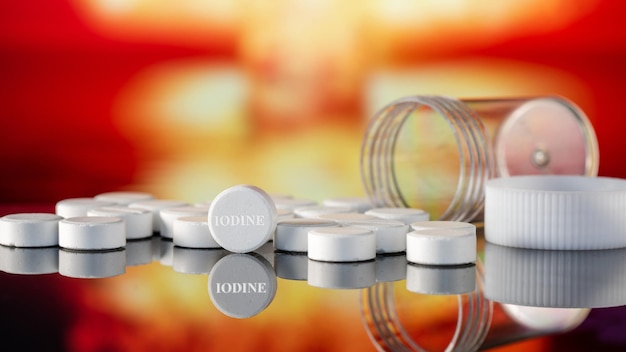How Does Iodine Impact Breast Health?
Iodine Deficiency is a Concern
Iodine deficiency is a significant issue that affects up to 40 percent of the global population, including many people in North America. The main reason for this widespread deficiency is not getting enough iodine in their diet. Over the years, the amount of iodine in our food has declined. Take bread, for instance. Until 1980, iodine was used to condition the dough, but it was then replaced with bromide. Bromide is a halogen like iodine, but it doesn’t provide any benefits and actually competes with iodine for absorption in the thyroid. Another issue is fluoride as it is commonly found in many water supplies. This toxic halogen also makes it harder for the body to absorb iodine.
Healthy Breasts Need Iodine
Every cell, organ, and system in the human body requires iodine, and this need is especially critical for female breast tissue. The breasts have a high concentration of iodine and use the same iodine-transporting proteins as the thyroid gland. In healthy breast tissue, iodine acts as an antioxidant. However, when breast tissue lacks iodine, it is prone to lipid oxidation, which can lead to various diseases, including cancer.
What is Fibrocystic Breast Disease?
Fibrocystic breast disease is a common yet often underreported condition where hormonally-influenced cysts develop in the breast tissue. These cysts can cause breast pain and tenderness, particularly before menstruation, and are usually easy to identify. Most women discover fibrocystic tissue during self-examinations, which often leads to anxiety and fear of the worst. Although fibrocystic breast disease is generally benign, it has been reported by the New England Journal of Medicine as a risk factor for breast cancer.
Fibrocystic Breast Disease is Linked to Iodine Deficiency
Without enough iodine, breast tissue becomes vulnerable to estrogenic stimulation, which can lead to the formation of microcysts and eventually fibrocystic breast disease. Directly depriving breast tissue of iodine can immediately trigger the onset of fibrocystic breast disease.
Iodine Promotes Breast Health
While some women use birth control to shrink cysts, many prefer to avoid its associated health risks and choose iodine supplementation instead. Iodine is not only safe but also promotes overall breast health. A study in 1993 found that iodine supplementation decreased the symptoms of fibrocystic breast disease. Moreover, research from 2004 showed that 50 percent of women suffering from breast tenderness due to fibrocystic disease experienced improvement after taking iodine supplements.
Iodine is Even More Important When Breastfeeding
A nursing mother needs sufficient nutrition to meet her own needs and produce milk for her developing child. Iodine is vital for maintaining breast health and is equally important for normal brain development in children. In fact, iodine deficiency is the leading cause of developmental issues. Since iodine is crucial for a newborn’s brain, breast milk serves as the perfect way to supply iodine to a nursing infant.
Are You Getting Enough Iodine?
Ensuring you get enough iodine depends on consuming iodine-rich foods and, for many people, taking iodine supplements. There are various types of iodine, some being more beneficial than others. You can undergo tests to determine if you need iodine. If you do, it’s best to compare different iodine supplements to make an informed choice about which one is right for you.
This should enhance the logical flow and readability of the content while using everyday, conversational language. The subheadings are formatted in bold as requested and the overall structure is appropriate for WordPress.

